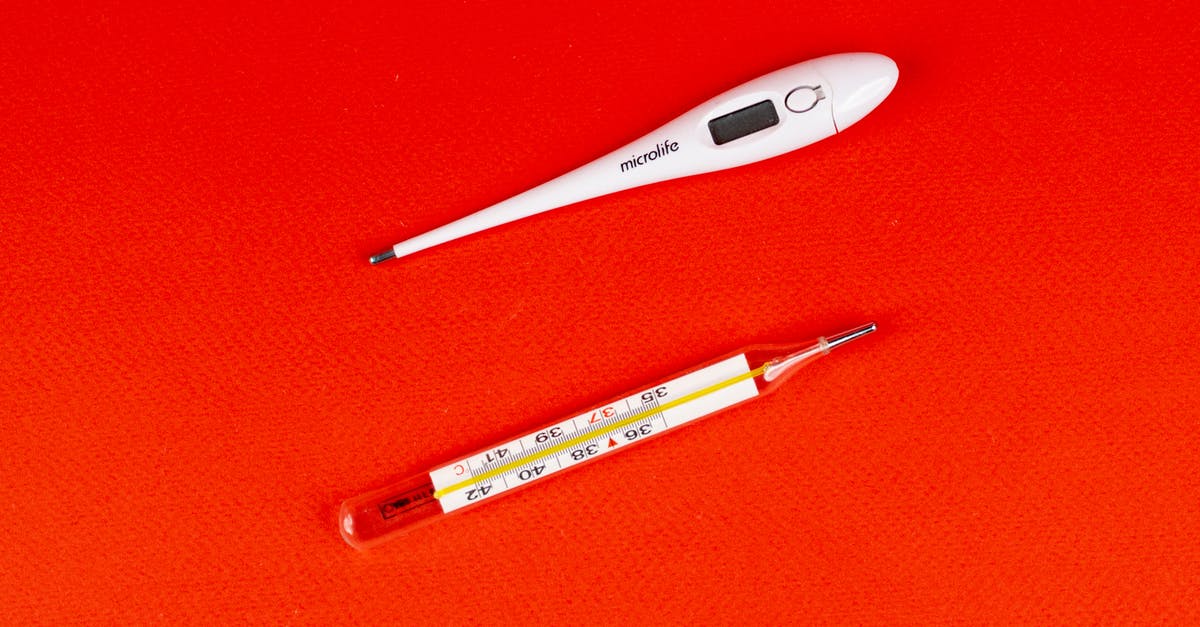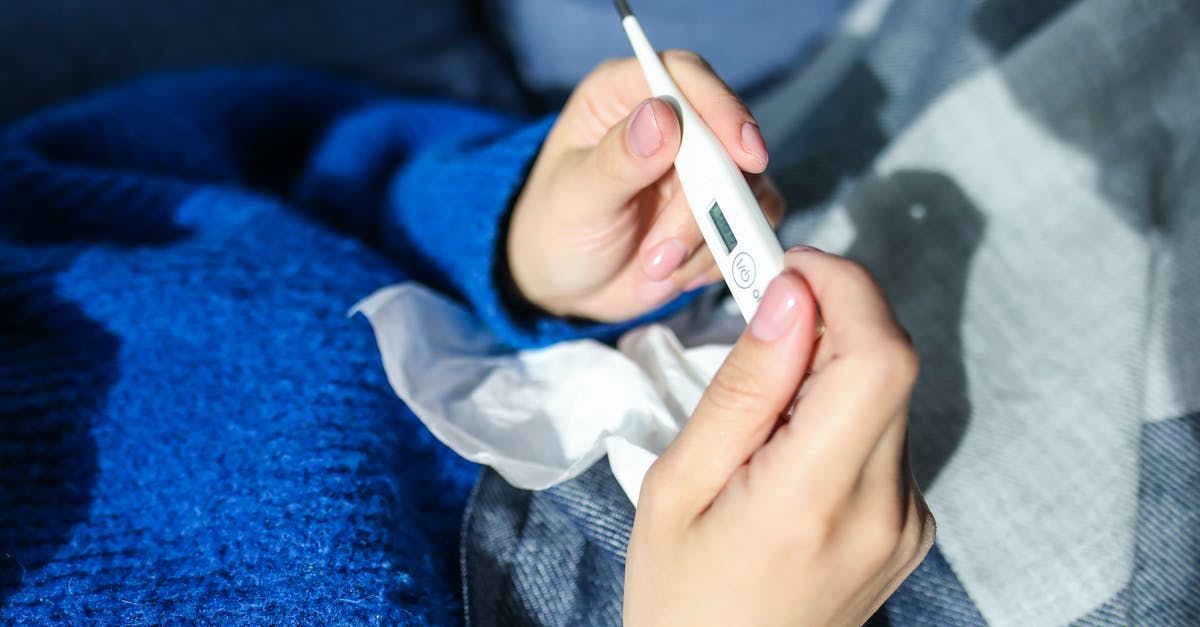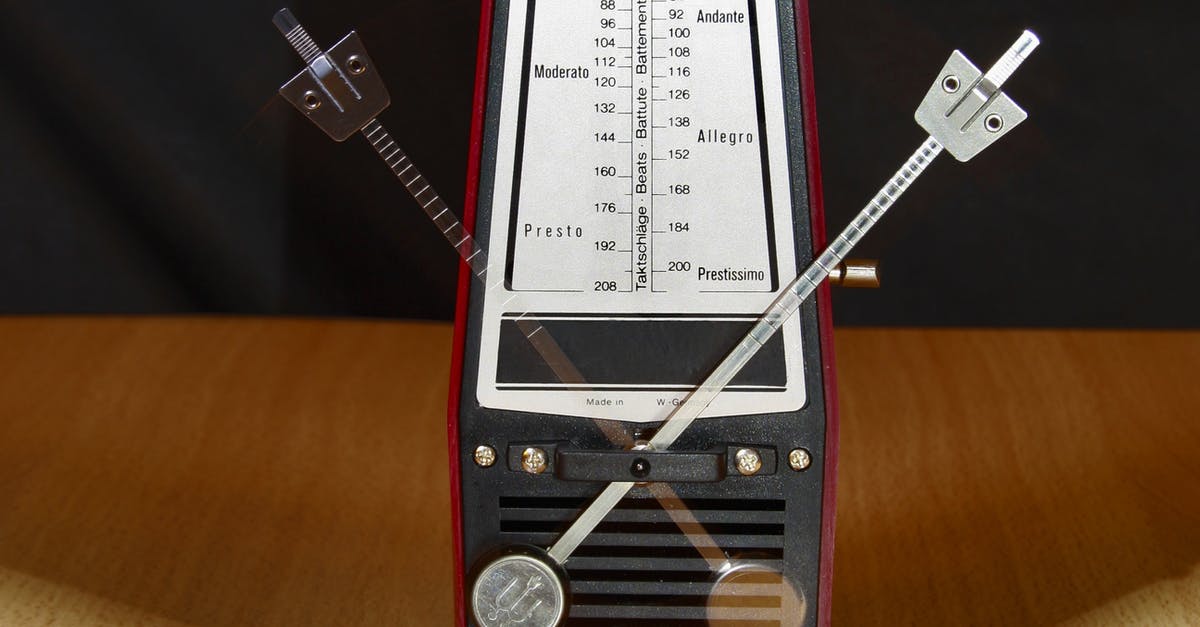Thermometer Precision in Different Temperature Ranges

I need a thermometer for a variety of different applications. As such, it has to be fairly precise (plus/minus 2 degrees) at different temperatures. Do I have to worry that, if I buy a thermometer which has a large range (0 to 300 C, for example), that it won't be sensitive to small changes in temperature near 40 C?
Best Answer
There are several type of thermometer. Since you didn't specify exactly what you will be using for the thermometer It's hard to tell which type you are getting. However the two most likely kind you will use are bulb thermometer and bimetal thermometer.
The way bulb thermometer works is there is a liquid inside of a thin tube. Heat expands the liquid so the higher the heat the more it expands. The liquid is calibrated to expand to the markings on the thermometer.
However, the sensitivity of a thermometer does not depend on it's range but rather on several different factors:
- The size of the bulb on the thermometer. If the bulb is smaller it absorbs heat faster thus expanding to the appropriate notch on the thermometer faster.
- If the walls of the thermometer is thinner, it will also result in the heat being absorbed faster.
A bimetal thermometer operates on the principle that different metals contract and expand to different degrees when exposed to temperature changes. Two strips made of different metallic materials are fused together as a spiral or rod. The strip will wind, unwind or bend as the temperature changes because one of the two materials in the strip will contract or expand to a greater degree than the other will. The free end of the strip is attached to a pointer that will indicate the temperature.
Once again because the dial moves base on the expansion (this time metal) which will stay constant, the range of the thermometer will not be affected.
Please note that over time these metal might degrade and lower the sensitivity of the thermometer but that is an issue of the longevity of the equipment.
Also note that is it harder to read the smaller changes by the human eyes if the range is larger since is scale is smaller but that has nothing to do with it's sensitivity.
EDIT:
If by chance you are refering to the uncertainty of a thermometer or how "incorrect" a thermometer can be, as Rumtscho mentioned, the uncertainty is usually given in the specs of the thermometer and you will need to do some research to find the one that will fit your needs. Just for example Tel-Tru boast an uncertainty of just +/- 1/10th degree Fahrenheit for it's products. You can usually find this sort of information on the product's website.

Pictures about "Thermometer Precision in Different Temperature Ranges"



Quick Answer about "Thermometer Precision in Different Temperature Ranges"
- The average normal oral temperature is 98.6°F (37°C).
- A rectal temperature is 0.5°F (0.3°C) to 1°F (0.6°C) higher than an oral temperature.
- An ear (tympanic) temperature is 0.5°F (0.3°C) to 1°F (0.6°C) higher than an oral temperature.
Does temperature affect precision?
The effect of the ambient temperature Exact measurements require a precise measuring system, but coordinate measuring machines (CMMs) only achieve maximum precision if the temperature, temperature gradients and humidity are within the set limit values.What is the precision of a thermometer?
Clinical thermometers and many electronic thermometers are usually readable to 0.1 \xb0C. Special instruments can give readings to one thousandth of a degree. However, this precision does not mean the reading is true or accurate, it only means that very small changes can be observed.Why does my digital thermometer give me different readings?
Differences between measurements can also result from the following factors: The thermometer is not the same temperature as the room you are measuring in (Example: it has been in a much warmer or colder room). The thermometer is inserted into the ear canal at a different depth or angle.Which temperature thermometer is most accurate?
Digital thermometers are the most accurate way to measure body temperature. There are many types, including oral, rectal, and forehead, plus many that are multifunctional.How to Take a Temperature: Under Arm, Oral, Ear, Rectum, Skin, Temporal
More answers regarding thermometer Precision in Different Temperature Ranges
Answer 2
You don't have to worry about the range being too wide.
What you need is a thermometer which is sensitive enough to show a change even for a small temperature change. Sensitivity is a measure of its reaction to even a very small temperature change.
But I think there is another factor which goes along with sensitivity - the responsiveness. Even a very sensitive thermometer might take some time to show the temperature change due to its response being too slow.
Sources: Stack Exchange - This article follows the attribution requirements of Stack Exchange and is licensed under CC BY-SA 3.0.
Images: Pixabay, Maksim Goncharenok, Polina Tankilevitch, Pixabay
